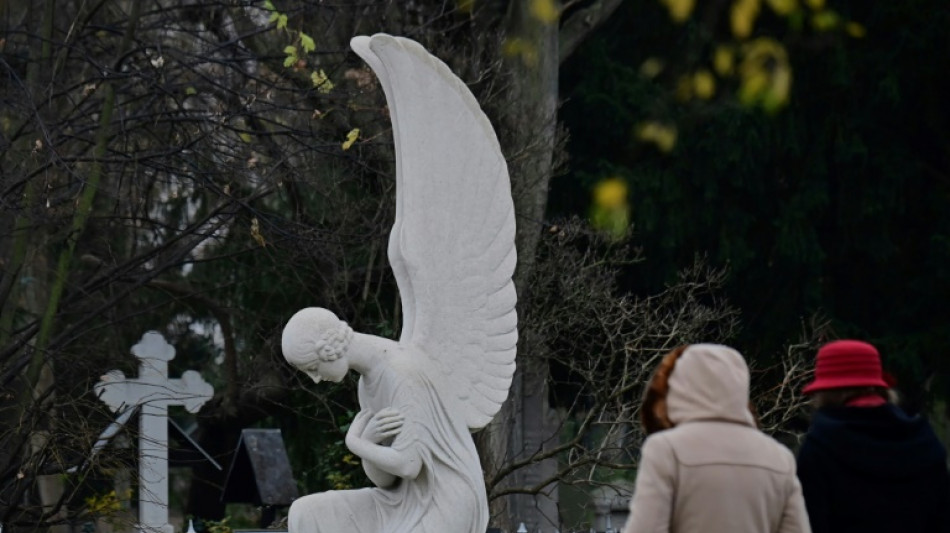
-
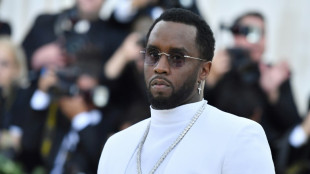 'Unlimited power': Testimony against Sean Combs tells of lurid violence
'Unlimited power': Testimony against Sean Combs tells of lurid violence
-
Inner workings of AI an enigma - even to its creators

-
 Air Force One: iconic jet gets the Trump treatment
Air Force One: iconic jet gets the Trump treatment
-
Hollywood studios and unions call on Trump to offer tax breaks

-
 Forest striker Awoniyi rushed to hospital for abdominal surgery: reports
Forest striker Awoniyi rushed to hospital for abdominal surgery: reports
-
Rain soaks first practice day at PGA Championship

-
 Progressive influencer tells of detention at US airport
Progressive influencer tells of detention at US airport
-
Rapper Tory Lanez attacked in US prison: authorities

-
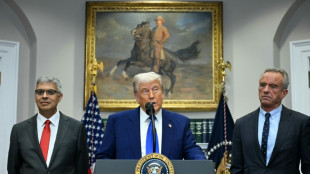 Trump announces drug price cut with swipe at Europe
Trump announces drug price cut with swipe at Europe
-
Hollywood stars condemn Gaza 'genocide' on eve of Cannes Festival
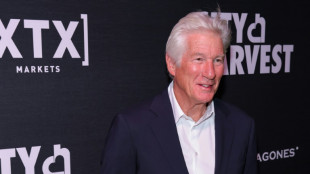
-
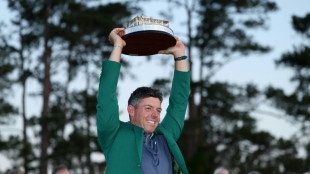 McIlroy looks to the future after post-Masters thrill ride
McIlroy looks to the future after post-Masters thrill ride
-
Sinner set for first Italian Open test, Sabalenka marches on

-
 Son wants Europa glory to 'complete' Spurs career
Son wants Europa glory to 'complete' Spurs career
-
First group of white South Africans arrive in US for resettlement

-
 Trump mulls joining Ukraine talks in Turkey, Kremlin silent on Putin
Trump mulls joining Ukraine talks in Turkey, Kremlin silent on Putin
-
US, China agree to slash tariffs as Trump says will speak to Xi
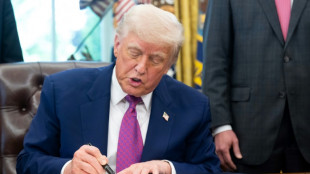
-
 Spanish rider Landa returns home for 'long recovery' after Giro crash
Spanish rider Landa returns home for 'long recovery' after Giro crash
-
Kurdish militant group PKK ends decades of armed struggle
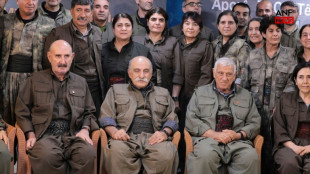
-
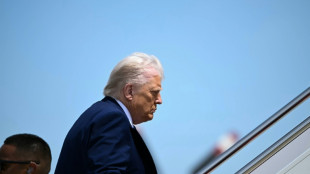 Trump says would be 'stupid' to reject Qatari Air Force One gift
Trump says would be 'stupid' to reject Qatari Air Force One gift
-
Uruguay's ex-president Mujica receiving palliative care: wife
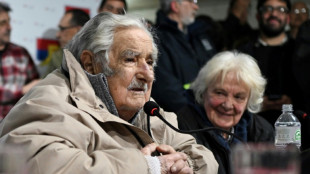
-
 Remainder of IPL to be held between May 17-June 3 after ceasefire
Remainder of IPL to be held between May 17-June 3 after ceasefire
-
Hamas frees US-Israeli hostage

-
 Trump defends resettling white South Africans as refugees in US
Trump defends resettling white South Africans as refugees in US
-
Sean 'Diddy' Combs was 'coercive and criminal,' jury hears
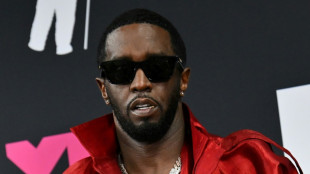
-
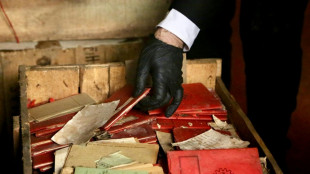 Nazi files found in champagne crates in Argentine court basement
Nazi files found in champagne crates in Argentine court basement
-
Myanmar junta airstrike kills 22 at school: witnesses
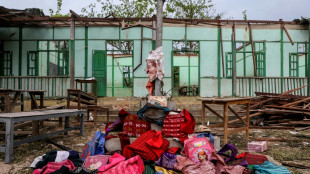
-
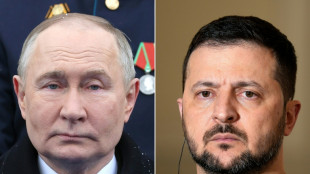 Zelensky wants Trump at peace talks, Russia silent on whether Putin will go
Zelensky wants Trump at peace talks, Russia silent on whether Putin will go
-
Ground-breaking Grand National winner Blackmore retires

-
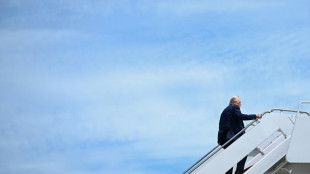 Trump heads on major Middle East tour
Trump heads on major Middle East tour
-
Nepal holds tribute for disappearing glacier

-
 Sinner eases into Italian Open last 16, Osaka dumped out
Sinner eases into Italian Open last 16, Osaka dumped out
-
Real Madrid duo Vinicius, Vazquez injured

-
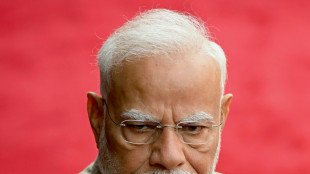 Indian PM Modi vows strong response to any future 'terrorist attack'
Indian PM Modi vows strong response to any future 'terrorist attack'
-
Opening statements start in Sean 'Diddy' Combs trial
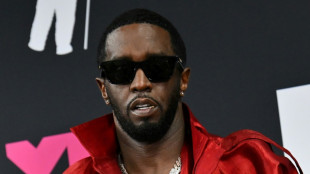
-
 Snow cover of Swiss glaciers below average this year: study
Snow cover of Swiss glaciers below average this year: study
-
Jihadist attack kills 'several dozen' in Burkina Faso

-
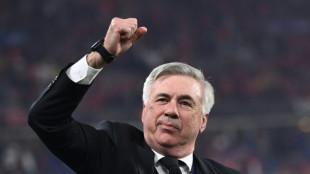 Ancelotti to leave Real Madrid for Brazil job
Ancelotti to leave Real Madrid for Brazil job
-
Trump announces drug prices cut with swipe at Europe
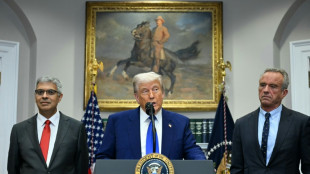
-
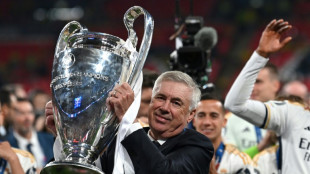 Ancelotti exits Madrid, hoping to add World Cup with Brazil
Ancelotti exits Madrid, hoping to add World Cup with Brazil
-
US, China agree to slash tariffs as Trump says to speak with Xi soon
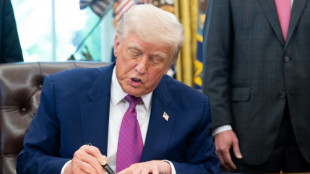
-
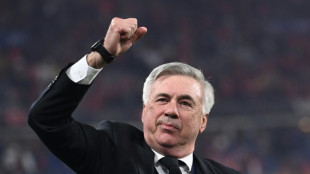 Ancelotti to take over as Brazil coach
Ancelotti to take over as Brazil coach
-
Israel urges ICC to drop arrest warrants against PM
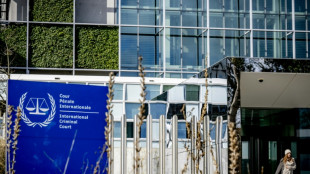
-
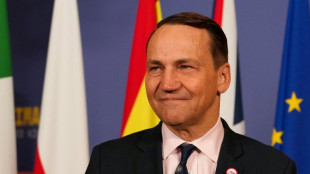 Poland to close Russian consulate in Krakow over 'sabotage'
Poland to close Russian consulate in Krakow over 'sabotage'
-
Kremlin rejects Europe's 'ultimatums' for truce with Ukraine
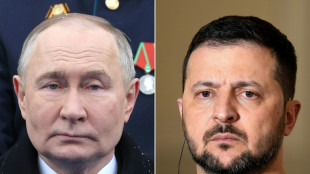
-
 Ireland rugby captain Doris ruled out for up to six months
Ireland rugby captain Doris ruled out for up to six months
-
Algerian attack survivor vows to be heard in court battle with award-winning author
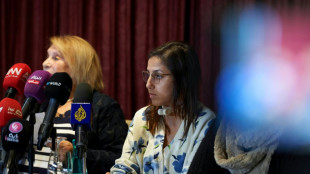
-
 Europa League glory could be 'turning point' for Spurs: Postecoglou
Europa League glory could be 'turning point' for Spurs: Postecoglou
-
White S.Africans resettled in US did not face 'persecution': govt

-
 Gaza faces 'critical risk of famine': UN report
Gaza faces 'critical risk of famine': UN report
-
Indian teams defuse bombs in Kashmir border areas
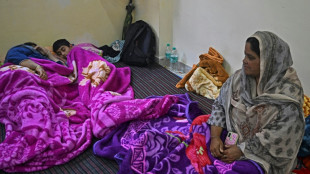

Germans rethink their way of death
Germans are finding that death no longer quite becomes them.
Europe's biggest economy is rethinking its way of death, with one start-up claiming to have found a way of prolonging life -- digitally at least -- beyond the grave.
Youlo -- a cheery contraction of "You Only Live Once" -- allows people to record personal messages and videos for their loved ones, which are then secured for several years in a "digital tombstone".
Unveiled at "Life And Death 2022" funeral fair in the northern city of Bremen this month, its creators claim it allows users to have their final word before they slip gently into the good night.
Traditionally, Lutheran northern Germany has long had a rather stiff and stern approach to death.
But as religion and ritual loosened their hold, the crowds at the fair show people are looking for alternative ways of marking their end -- a trend some say has been helped by the coronavirus pandemic.
"With globalisation, more and more people live their lives far from where they were born," said Corinna During, the woman behind Youlo.
When you live hundreds of kilometres from relatives, visiting a memorial can "demand a huge amount of effort", she said.
And the Covid-19 pandemic has only "increased the necessity" to address the problem, she insisted.
- No longer taboo -
During lockdowns, many families could only attend funerals by video link, while the existential threat coronavirus posed -- some 136,000 people died in Germany -- also seems to have challenged longtime taboos about death.
All this has been helped by the success of the German-made Netflix series "The Last Word" -- a mould-breaking "dramedy" hailed for walking the fine line between comedy and tragedy when it comes to death and bereavement.
Much like British comedian Ricky Gervais' hit series "After Life", which turns on a husband grieving the loss of his wife, the heroine of "The Last Word" embraces death and becomes a eulogist at funerals as her way of coping with the sudden death of her husband.
"Death shouldn't be a taboo or shocking; we shouldn't be taken unawares by it, and we certainly shouldn't talk about it in veiled terms," Bianca Hauda, the presenter of the popular podcast "Buried, Hauda", told AFP.
It aims to "help people be less afraid and accept death," she said.
"The coronavirus crisis will almost certainly leave a trace" on how Germans view death, said sociologist Frank Thieme, author of "Dying and Death in Germany". He argued that there has been a change in the culture around death for "the last 20 to 25 years".
These days, there are classes to teach you how to make your own coffin and even people who make a living writing personalised funeral speeches. Digital technology which was "barely acceptable not so long ago" was also beginning to make its mark, he said.
- 'Straitjacket' -
Historian Norbert Fischer of Hamburg University said they have been a shift toward individualism in the "culture of burials and grief since the beginning of the 21st century.
"The traditional social institutions of family, neighbourhood and church are losing their importance faced with a funeral culture marked by a much greater freedom of choice," he said.
However, the change has been slower in Germany because "legal rules around funerals are much stricter than most other European countries," said sociologist Thorsten Benkel, which is at odds with "what individuals aspire to".
Some political parties like the Greens also want to loosen this legislative "straitjacket", particularly the law known as the "Friedhofszwang".
The 200-year-old rule bans coffins and urns being buried anywhere, but in a cemetery. Originally passed to prevent outbreaks of disease, it has been largely surpassed as a public health measure, particularly since cremation became popular.
Germany also had a very particular relationship with death in the aftermath of World War II.
Back in 1967, the celebrated psychoanalysts Margarete and Alexander Mitscherlich put Germany on the couch with their book "The Inability to Mourn".
One of the most influential of the post-war era, the book argued that Germans had collectively swept the horrors committed by the Nazis in their name -- and their own huge losses and suffering during the war -- under the carpet.
Thankfully, said Benkel, mentalities have "changed an awful lot since".
G.Stevens--AMWN